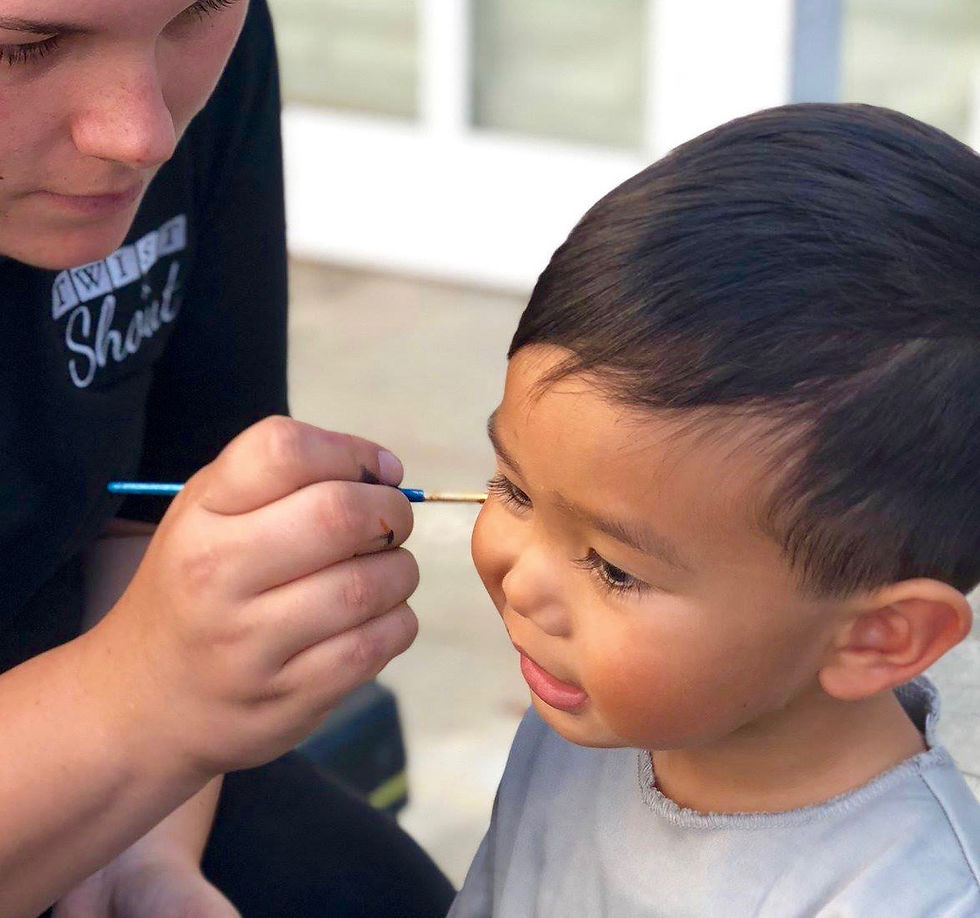Screen Time and Child Development
- May 18, 2019
- 3 min read
The phrase “screen time” is heard in educators’ and doctors’ offices around the country as screen time for children becomes a hot button issue in our society today. But what are the facts and how can we create a healthy relationship with our screens?
Screens and Child Development
The American Academy of Pediatrics (AAP) suggests that children under 18 months should not have any screen time (zero minutes). Children in the preschool age should have limited screen time that serves a purpose or goal or is one piece of an interaction or experience but should be kept in a range of zero minutes to 2 hours total each day. Afterwards, a good rule of thumb is for children of all ages, even teens, to have only 1-2 hours of screen time, if at all possible. Maria Montessori believed that children learn through experiences and should be completely absorbed in them. Experiences are multi-dimensional and involve all the senses; a child watches, listens, touches, and is integrated in the experience, large and small. Research in early child development continues to prove Dr. Montessori’s theories – experiences lay the foundation for an explosion of neural networking that is occurring in children’s brains during this critical period. These neural pathways require stimuli from the outside world in order to grow. Screens offer only part of an experience. Think back to the last time you used a screen; sure, you were able to see it and hear it, but could you touch it (and I don’t mean just touching the screen)? The experiences a child has during the critical period, the period during the preschool years, shape the entire future of the child. How do screens play a role in child development?

Areas for Improvement
Children in America spend up to 5-7 hours a day in front of a screen! What impact does this have on children’s literacy, creativity, and imagination - the foundation of child development? In today’s fast paced and busy world, it can be easy and convenient, not to mention effective, to soothe and calm a child using a screen. However, research has shown that too much screen time can hinder your child’s development and capacity for learning. Increased screen time beyond the recommended guidelines in children 2-3 years of age was associated with poorer performance when screening for achievement of developmental milestones between 3-5 years of age. MRI data demonstrated significant changes in the brain’s architecture of children who reported more than 7 hours of screen time per day. Children who had more than two hours of screen time per day also scored lower on thinking and language tests. Although many of these findings are still being researched, we do know that increased screen time increases the rates of obesity, disrupts children’s and adult’s sleeping patterns, and is associated with increased depressive symptoms in teens and college students. One study demonstrated that if college students limited screen time to less than 30 minutes per day, participants felt less lonely and depressed.

Here are some tips to decrease screen time in your home:
No TVs/computers in the bedroom
Turn off the TV during the day
Enjoy a family meal screen free, including phones
Do not eat in front of the screen
Turn off screens one hour before bed and eliminate screens from the bedtime routine
Like most things, make screen time (and the lack of it) part of your daily routine
Experts agree! Sleep experts understand that we live in a technological world and screens are necessary at times but have similar rules in their own home such as limited tv on weekdays, and no screens during dinner and before bedtime. When they do have screen time, experts work tv into family time and watch together to create more meaningful experiences.

The Positive Side of Screens
Screens aren’t all bad and can be used to increase your bond with your child. If you do use screens with your preschooler, make sure that the content is interactive and involves as many of the senses as possible. One way to accomplish this is to play the game or use the screen with your child. That way, you can discuss the content and participate in the game to help bolster language and social development.
Final Thoughts
Like most things, screens can be beneficial when used in moderation. Using screens during short periods like when you are taking a shower, putting a newborn to bed, cooking dinner, or putting a load of laundry in can help you successfully multi-task. Screen time can also be a part of your family time and allows your family to engage with each other and strengthen your bond. When thinking about screens, use the AAP guidelines to help build your daily routine and think about the big picture. TVs, computers and smart phones can be integrated into your family successfully in a way that works for everyone in the family!





















Comments